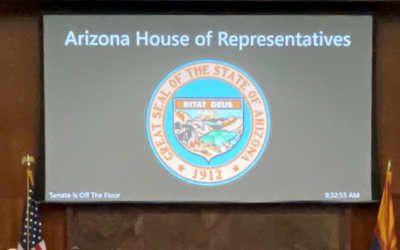By Terri Jo Neff |
The City of Flagstaff can be forced to pay the State of Arizona more than $1.1 million for enacting a minimum wage that is significantly higher than the state wage, according to an Arizona Court of Appeals opinion released Tuesday.
But whether the State gets to keep the money will be determined once a Maricopa County judge conducts a trial on the matter.
Back in 2006, Arizona voters approved Proposition 202 which allows cities and towns to set their local minimum wage, as long as it is not below the state level. Flagstaff did just that in 2016 with the passage of a local voter initiative.
The Arizona Legislature passed a new law in 2019 which allows the State to collect yearly assessments from any municipality with a minimum wage that exceeds the State’s. The assessment entails a detailed process involving state agencies estimating their costs “attributable” to the higher minimum wage.
Each assessment must be approved annually by another act of the legislature, after which the Arizona Department of Administration (ADOA) is required to issue an assessment to the municipality by July 31.
Any impacted municipality then has until the end of the calendar year to remit payment or the Arizona Treasurer must withhold the amount with applicable interest from the municipality’s share of tax revenues.
In the Flagstaff case, the state agencies were asked by the Legislature in 2019 to calculate their “projected costs attributable to Flagstaff’s higher minimum wage” in their 2021 budget estimates. That amount was calculated at $1,110,992, based on Flagstaff’s $15 per hour minimum wage effective Jan.1, 2021.
The Arizona hourly minimum at the time was only $12.15.
The $1.1 million Flagstaff assessment was approved by the Legislature via Senate Bill 1827 on June 30, 2021 and signed the same day by then-Gov. Doug Ducey. ADOA then advised city officials the assessment would be formally issued 90 days later, well after the July 31 deadline.
In the meantime, city officials filed a lawsuit, challenging the 2019 statute as well as the 2021 Senate Bill, arguing both were unconstitutional under the Voter Protection Act (VPA). The effective date of the assessment also plays a big role in the lawsuit.
Without opining on Flagstaff’s constitutional arguments, a Maricopa County trial judge quickly issued a preliminary injunction to prevent the State from enforcing the assessment while the lawsuit is being litigated.
The judge primarily relied on the belief at the time that the June 2021 assessment did not take effect the day it was signed into law, thus making ADOA’s plan to collect the money 90 days later untimely.
The trial judge also briefly noted he was granting the preliminary injunction “out of an abundance of caution” as Flagstaff officials had argued about the “possibility of irreparable harm” with funding critical services if forced to pay the $1.1 million.
The Arizona Attorney General’s Office appealed the preliminary injunction order, arguing on behalf of ADOA and Treasurer Kimberly Yee that the Maricopa County judge made multiple errors to support issuing it. And in a Feb. 21 opinion, the Court of Appeals agreed.
The opinion authored by Acting Presiding Judge Randall M. Howe noted the trial court erred in considering Flagstaff’s irreparable harm argument under the set of facts as they are in the case. Howe added that the city had sufficient funds to cover the assessment, and could have gotten the fund back if the State lost the lawsuit.
As a result, Howe was joined by Judge D. Steven Williams and Vice Chief Judge David B. Gass in overturning the preliminary injunction and sending the case back to the Maricopa County Superior Court “for a trial on the merits.”
The opinion also strongly suggests the trial judge consider a 2022 ruling by the Arizona Supreme Court (Ariz. Free Enter. Club v. Hobbs) in which the justices clarified that revenue laws proving “for the support and maintenance” of “existing state departments or state institutions” are valid upon enactment instead of taking effect at a later date.
If applied to SB1827, that would have allowed ADOA to issue the assessment to Flagstaff in plenty of time to meet the July 31 deadline.
The Court of Appeals also unanimously declined a request from the parties for the judges to weigh in on some other key legal issues with the case, including whether the 2019 statute allowing for assessments of costs to cities like Flagstaff “impliedly amend the VPA, violating Arizona’s constitution.”
Howe wrote that the court of appeals “sits as a court of review, not of first view,” and would not decide the merits of the case without the benefit of having a fully developed record from the trial court.
“While the parties are understandably eager to resolve this case as quickly as possible, quickness must not eclipse thoroughness,” Howe wrote. “We respect the role of the trial court and trust in its competence to resolve all legal and factual matters before it in the first instance.”
The opinion does not take effect for at least 30 days, giving both sides time to petition for review by the Arizona Supreme Court.
As of Jan. 1, 2023, Flagstaff’s minimum is to $16.80 per hour ($14.80 tipped) while the state minimum rose to $13.85.
Terri Jo Neff is a reporter for AZ Free News. Follow her latest on Twitter, or send her news tips here.








